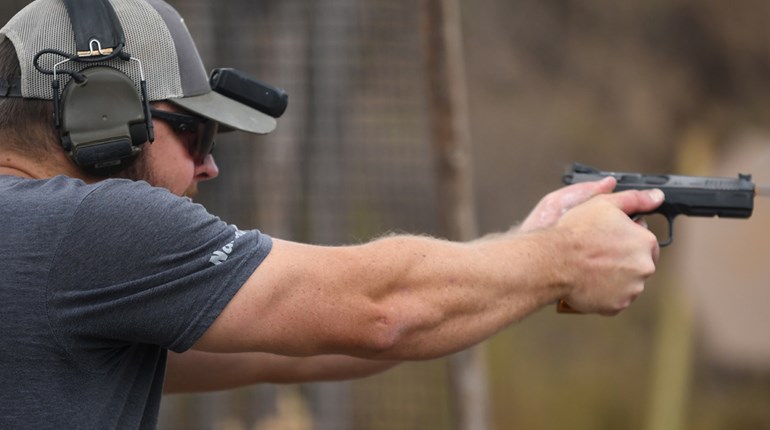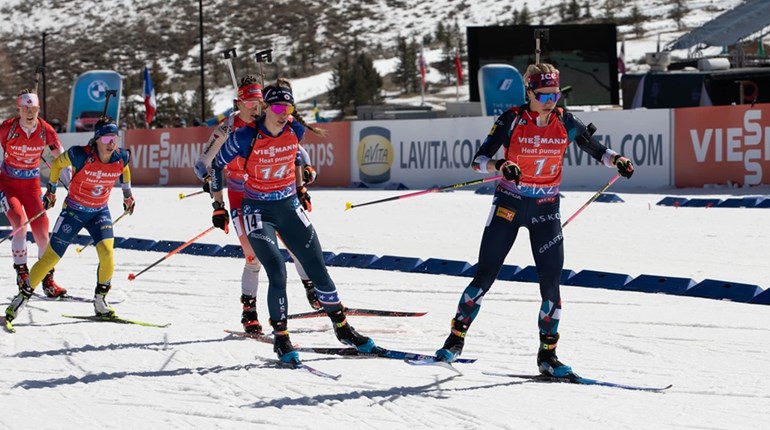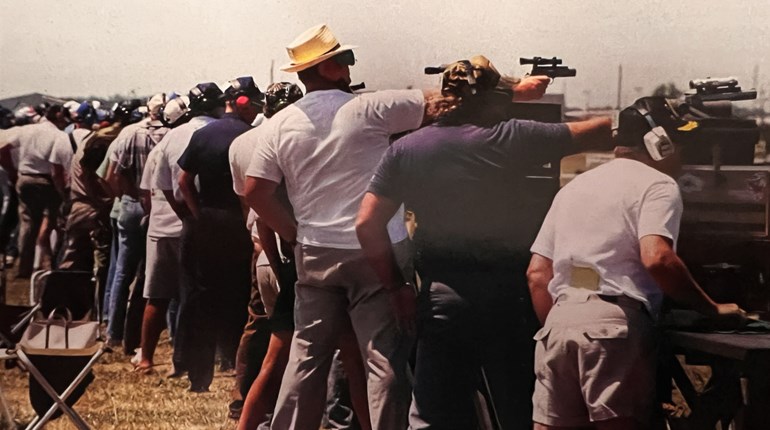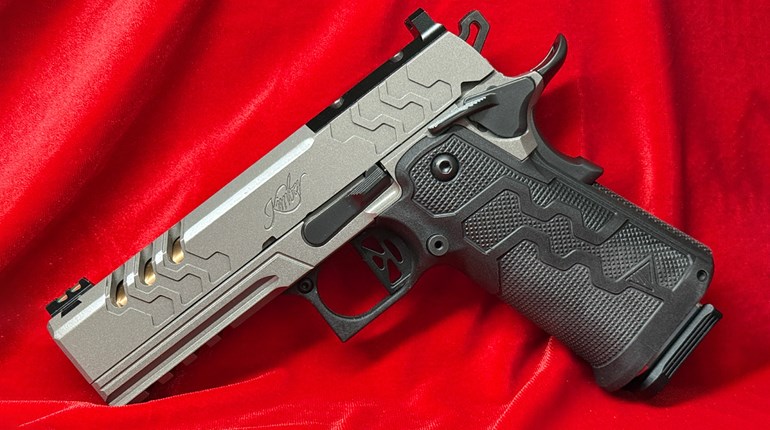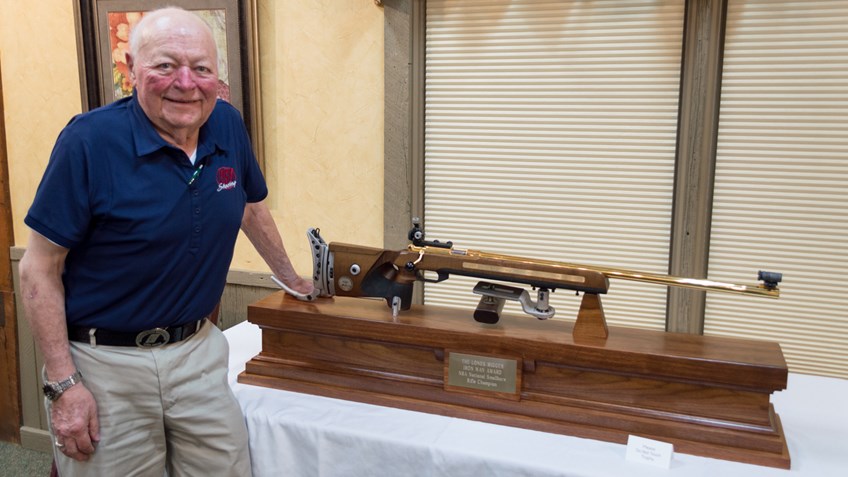
When Theodore Roosevelt passed away in early 1919 it fell upon his son Archie to inform his brothers who were serving with the Army of Occupation in Germany. He cable was short, simple, and eloquent, “The Old Lion is dead.” We may say the same at the passing of Lones Wesley Wigger, Jr.
No one cast a larger shadow on the international and national competitive shooting scene in the latter half of the 20th century than Wigger. In a career that spanned 25 years he was selected to four U.S. Olympic Teams. He won two golds and one silver, and was the only athlete to ever medal in all three Olympic rifle events―smallbore prone, smallbore position and 300-meter position competition.
During his international shooting career, Wigger won 65 gold, 38 silver and eight bronze medals, an astonishing 111 medals, while setting 29 world records; two accomplishments that are, and will likely remain, unmatched.
Elected to the U.S. Olympic Hall of Fame, the only shooting athlete to be so honored, he was also named by the USOC as a “Golden Olympian.” He is also a member of the USA Shooting and U.S. Army Marksmanship Unit Halls of Fame.
Wigger began shooting in Carter, MT, under his father’s tutelage. He then attended Montana State College where he was a four-time All-American. A member of the Army Reserve Officer Training Corps he was commissioned upon graduation and headed off to Fort Benning, Infantry Officer Basic School, the Army Marksmanship Unit, and international fame.
He burst upon the shooting scene at the 1964 Olympics with a silver medal in the English Match, losing the gold on a tie breaker, followed by a record-shattering gold medal performance in the smallbore position event. Eight years later he would take home another gold, this time for 300-meter position shooting.
Excepting two tours in Vietnam, the first as an agricultural advisor and the second as officer in charge of the 23rd Infantry Division Sniper School, he spent his career assigned to the U.S. Army Marksmanship Unit. It worthy of note is that during his two tours in Southeast Asia the competitive Wigger used his precious leave to return to the United States to compete at Camp Perry and the 1971 Pan American Game tryouts.
During his 1967 tour he made it to Perry to earn a spot on the Dewar Team, finished fourth in the position aggregate, and earned his final “step” for the NRA Smallbore Position Rifle Distinguished Award. Four years later, he used his leave for the Pan American Games tryouts. He was called back home to compete in the games where he won a silver in prone. Wigger then hopped on a flight to the U.S. and drove cross country to Camp Perry, where he won the position championship for a record sixth time―after which he returned to the war zone.
Domestically, Wigger won 56 National indoor and outdoor titles, his most outstanding achievement being 21 Outdoor Smallbore Rifle Position Championships between 1963 and 1991, which included a run of nine consecutive Parsons Trophies between 1976 and 1984. Add to that eight Outdoor Smallbore Rifle Prone Championships, and the fact that he won both championships in 1963 and 1973 and you have an impressive resume. Wigger also compiled countless National Records, 29 appearances on the U.S. Dewar Team, six Pershing Teams, four Roberts Teams, and one Wakefield Team.
In a life full of great shooting accomplishments, it might seem odd that the prize he held dearest was not a win. When the any sight team scores at the 2013 NRA National Smallbore Rifle Prone Championship were posted, they revealed that the Stinkniks’ “Team Wigger” had shot a 1600-133X, good for second place and just 13 Xs behind Wigger’s old team, the U.S. Army Marksmanship Unit. When “Team Wigger” was called to the stage Lones, Ron, Deena, and Danny Wigger, coached by Mary Kay Wigger, stood side-by-side, the only time in memory that a team of father, mother and three siblings placed in a National Championship event.
During the 1987 Interservice International Rifle Championship, competitors took a break from the action for a night of celebration to honor of Wigger on his retirement from the Army. Dieter Anschütz, president of the eponymously named rifle company, was a guest and presented Wigger, his most famous customer, with a gold plated Anschütz Model 1813 rifle. Wigger generously donated the rifle to the National Rifle Association to be used as a trophy in 2013. Named the Lones Wigger Iron Man Award, it is presented to the competitor with the highest aggregate of the NRA’s four national outdoor smallbore rifle championships: metric and conventional prone and three position.
It takes hard work to win the 12-day grind that is the Iron Man, but to work hard was Wigger’s way. He freely admitted that he was not a naturally gifted rifle but he had observed that the shooters who were winning were winning because they were working hard. A fierce competitor, he vowed that no one would ever outwork him saying that, “The will to win is really better stated as the will to prepare to win. In shooting, it’s persistence that pays the biggest dividends—constant, steady practice, week in and week out, all year long. I truly believe that anyone can be a champion marksman if they work at it long and hard enough.”
The two Old Lions, men who received the highest prizes of their chosen professions, Nobel Peace Laureate Teddy Roosevelt and Olympic gold medalist Lones Wigger, saw the road to success through the same lens, best stated by Roosevelt who wrote, “Far and away the best prize that life has to offer is the chance to work hard at work worth doing.”
Lones Wesley Wigger, Jr.
August 25, 1937- December 14, 2017













